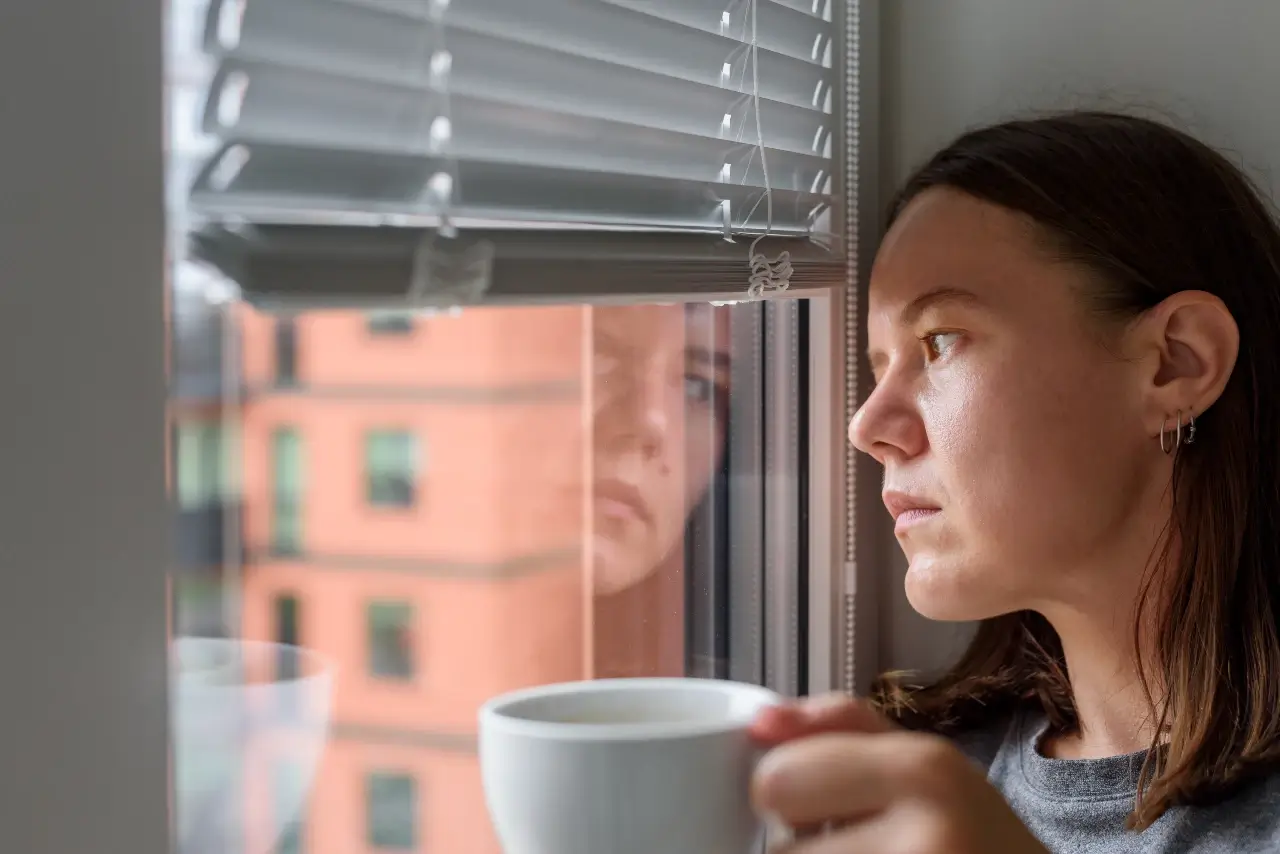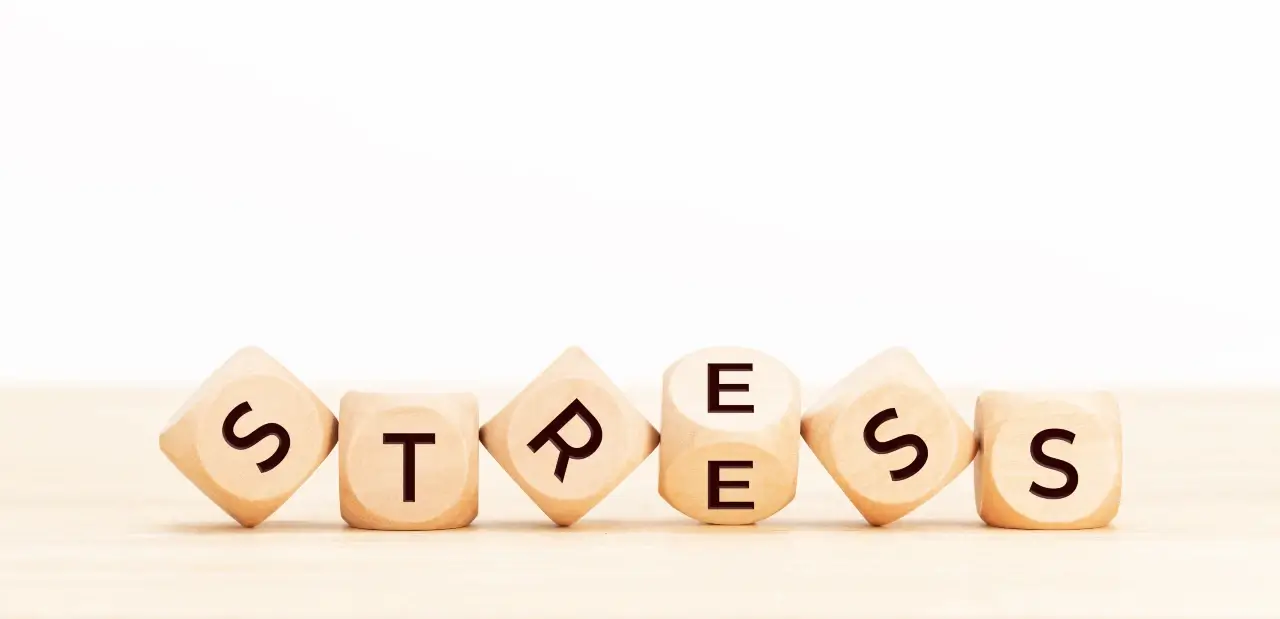Do you ever feel overwhelmed by worry and fear? Are you constantly tense and irritable but don’t know why? Do you also question whether it is ‘just’ stress or anxiety?
Anxiety and stress are two very common states experienced by individuals of all ages. Because the symptoms are so closely linked, it may be difficult to tell them apart. While they may overlap in symptoms, they are different and have distinct causes and treatments.
In this article, we will explore the key characteristics of stress and anxiety, common symptoms and give you some tips on how to tell the differences.
Table of Contents
ToggleAnxiety is an emotion characterized by feelings of worry, unease, and fear. It is a normal and often healthy emotion, but when it gets out of hand and occurs more frequently or intensely than normal, it can become a source of distress.
Anxiety usually manifests as a feeling of worry, typically related to something upcoming or a fear of something unknown or unexpected.
For most people, anxiety is a passing emotion that comes and goes. However, for others, anxiety can be chronic, resulting in a constant and overwhelming presence that interferes with daily life.

Anxiety is often described as an internal smoke detector. Just as a false alarm can trigger a smoke detector, so too can anxiety be triggered by a false sense of danger. Once the anxiety is triggered, turning it off can be challenging.
Anxiety can show up as constant thoughts and worrying, for instance, when you are wide awake in the middle of the night. You might feel your heart rate increasing, your hands might be sweating, and you might have this overall feeling of tension in your body. You might be thinking about your work, aging parents, and day-to-day interactions, worrying about your financial future or just purely thinking about ‘bad’ things that ‘could’ happen. All these worrying tendencies are the emotional response that we call anxiety.
Symptoms of anxiety can vary widely, but common symptoms include:
- Excessive and prolonged worry
- Feeling tense
- Nervousness
- Feeling your heart beating faster than usual
- Finding it hard to breathe
- Sweating
- Feeling irritable
- Difficulty focusing and concentrating
- Difficulty falling asleep
The causes of anxiety are not fully understood but likely involve a combination of genetic, brain chemistry, and environmental factors. Those with a family history of anxiety disorders are more likely to develop one themselves, indicating a genetic component. Imbalances in certain neurotransmitters, such as serotonin, can also play a role in anxiety. Life events such as trauma, grief, financial difficulties and relationship problems could be a trigger for developing anxiety.
It’s important to note that having anxiety doesn’t mean a person is weak or can ‘just snap out of it’ – it is a complex condition that affects people differently.
What is Stress?

Stress is the body’s natural response to a perceived threat, challenges or demands in life. It is a feeling of pressure or tension, often concerning a particular event or situation.
It is essential to understand that stress is a normal part of life. It is a physical and emotional response to anything that requires us to adapt or change. Hence, stress can be caused by both positive and negative experiences (e.g., marriage, graduating from school, starting a new job, having a baby, moving to a new city, etc.).
Stress can be both positive and negative. Positive stress, also known as eustress, is usually short-lived, and it can help you to perform better in situations such as a job interview or a presentation.
Negative stress, also known as distress, results from too much stimulation or pressure, and it can become difficult to manage, resulting in physical and mental health issues.
When we have less control over the source of the stress, our stress response is usually more intense. While stress can be a positive response to certain changes in our lives, prolonged activation of the stress response can lead to physical and emotional wear and tear on our bodies, known as distress.
Like anxiety, stress can be a problem when it becomes chronic. Chronic stress can lead to serious health problems if not properly addressed.
The causes of stress are varied and often caused by a combination of factors. Some of the most common causes include:
- Work-related stress: meeting deadlines, high workloads, unrealistic targets, and lack of control over work tasks can all contribute to stress.
- Relationship problems: conflicts with family, friends, or romantic partners can lead to stress.
- Health problems: chronic health conditions, such as heart disease, diabetes, or cancer, can lead to stress
- Caregiving responsibilities: parenting or taking care of family members, such as elderly parents can be stressful as they require attention and care.
- Life events: stressful events such as moving to a new city, the death of a loved one, or financial difficulties.
Symptoms can range from mild to severe and can be different on an individual basis. They may include:
- Irritability
- Difficulty concentrating
- Feeling overwhelmed
- Difficulty making decisions
- Muscle tension
- Racing heart
- Fatigue
- Headaches
- Changes in appetite
- Difficulty sleeping
- Frequent colds or illnesses.
But stress is not always a negative thing. It can be motivating, in small doses, and help you focus or complete tasks. However, chronic stress can have a detrimental impact on overall well-being, and it’s crucial to find ways to manage it.
How is Anxiety Different from Stress?
Anxiety and stress are distinct in many ways. For instance, the physiological reactions of stress can be triggered by both positive and negative experiences. On the other hand, anxiety is an emotional response to a perceived threat characterized by distress or fear.
Another way to tell anxiety and stress apart is to look at the root cause. Stress is usually caused by a specific event or situation, while anxiety is triggered by a heightened sense of fear.
Stress can be easier to manage and reduce than anxiety, as stress can usually be addressed through lifestyle changes, such as getting enough sleep, exercising, and engaging in relaxation techniques. On the other hand, anxiety can be more challenging to manage and may require professional help.
Lastly, anxious individuals often find it hard to pinpoint the cause of their worry, whereas someone who is stressed usually knows the cause of their symptoms.
Stress is an external stimulus that signals danger and, in turn, produces fear as a response. Anxiety has similar symptoms to those of fear. But anxiety symptoms seem to linger much longer from when the stress or threat has passed.
Anxiety and stress can also co-occur, meaning that a person may experience both anxiety and stress at the same time. For example, a person may experience anxiety symptoms as a result of a stressful event, such as a job interview or a car accident.
Additionally, while the symptoms of anxiety can be brought on by stress, anxiety can also occur independently of stress.
Here are some suggestions to distinguish between anxiety and stress:
Pay attention to the timing of your symptoms
Anxiety is often tied to an upcoming event or situation, whereas stress is commonly linked to a specific event or situation that is happening at that moment.
Identify the cause of your symptoms
Stress is a reaction to an external factor, like a deadline at work. Anxiety on the other hand, is an individual’s specific response to stress that comes from within (i.e., internal factor). For example, you might be stressed about a project that you have to submit, and anxiety manifests in worrying thoughts about the project (i.e., not doing a good job on it and looking bad in front of your boss or co-workers).
Consider the duration of your symptoms
Stress typically disappears when the situation is resolved, whereas anxiety persists even after a concern has passed.
Overall, understanding the triggers and effects of stress and anxiety can be helpful in managing and reducing symptoms. It is important to remember that both can be present at the same time and can lead to physical and psychological symptoms.
Everyone experiences stress differently, so it’s important to pay attention to your body and mind to understand how stress affects you. If you’re feeling any combination of physical and psychological symptoms, it may be time to seek help from a professional.
While symptoms of anxiety and stress can overlap, there are some key differences. Anxiety often involves excessive and prolonged worry, nervousness, and fear, while stress is more often related to a specific situation or event.

Delia Petrescu
Founder & Director
BA, MA, Registered Psychotherapist (RP)
Delia Petrescu, MA, RP is a Toronto-based psychotherapist, psychometrist, and the founder of Get Reconnected Psychotherapy and Counselling Services. She provides virtual therapy sessions Ontario-wide. Delia has experience working with adults struggling with adjustment difficulties, depression, anxiety, and trauma. She specializes in integrative and holistic care for those coping with life crises such as fertility concerns. Read more about Delia

The Neurobiology of Burnout: How Chronic Stress Physically Changes the Brain
Introduction We all know the feeling of burnout. That overwhelming exhaustion that comes from pushing ourselves too hard for too long. We might try to

Burnout Vs. Depression: Exploring the Difference
Burnout Vs. Depression: Exploring the Difference Have you ever felt so tired, with a sense of not caring about anything, not enjoying the things you

How To Tell The Difference Between Worry, Stress and Anxiety
How To Tell The Difference Between Worry, Stress and Anxiety Introduction Many of us have often used the terms stress, anxiety, and worry interchangeably, without





